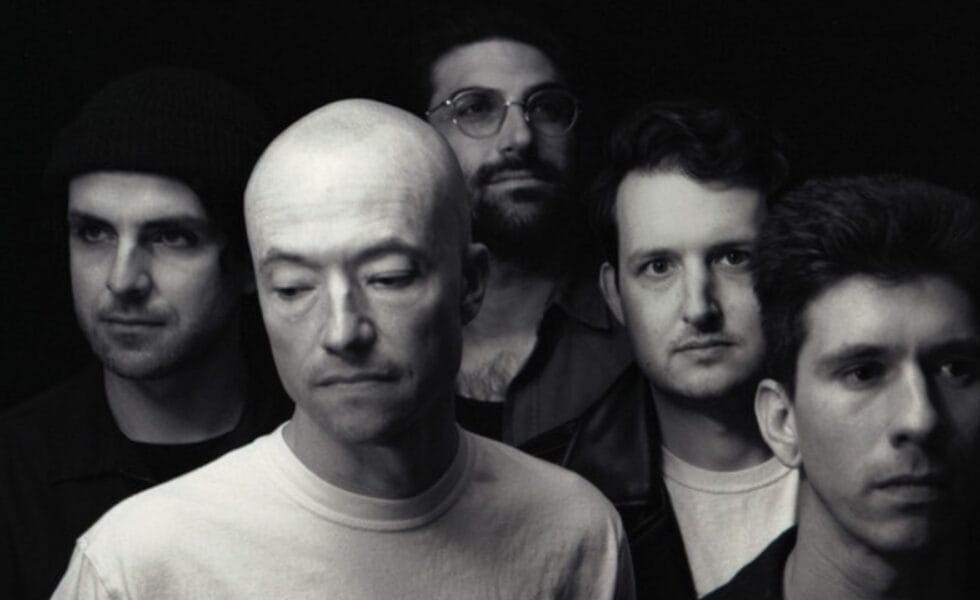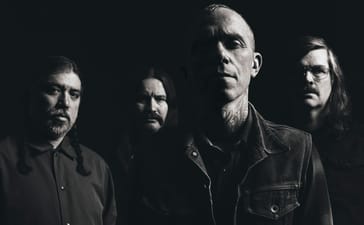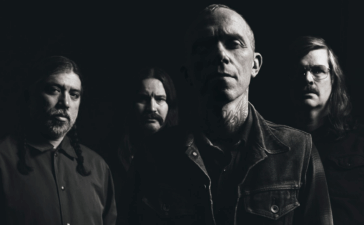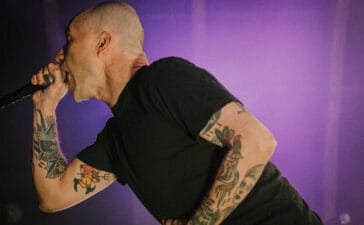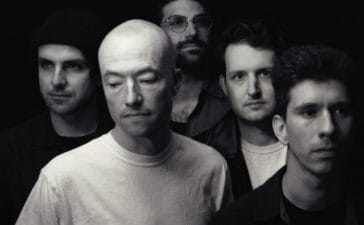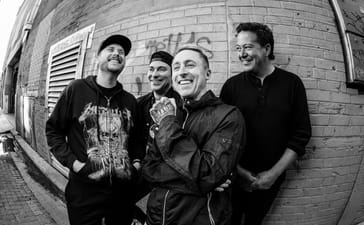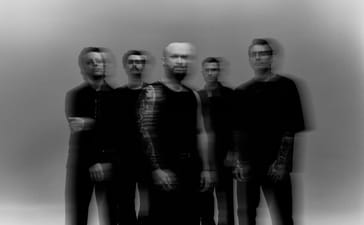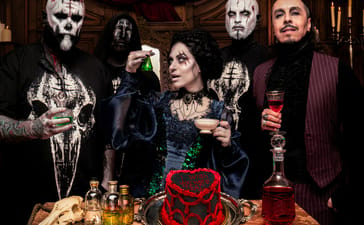As Touché Amoré prepares to return to Australia this July for a headline tour, frontman Jeremy Bolm takes a moment to reflect on nearly two decades of the band’s evolution.
With a career spanning multiple acclaimed albums, including their latest release Spiral in a Straight Line, Touché Amoré continue to do what they do best, and are gearing up to share it with their dedicated Aussie fans.
We caught up with Jeremy as he shared an intimate glimpse into the band’s journey so far. He teases the debut of songs never heard in a live setting before and discusses how the band balances revisiting fan favourites with introducing fresh new tracks, ensuring every show is both a nostalgic journey and an exciting new experience.
Blunt: I want to talk about how you’re heading back to Australia this July for the headline tour. How does it feel to be returning? What do you look forward to when you come back to Australia each time?
Jeremy: Well it’s always nice to get to come back and play new material. That’s always exciting to see how it has potentially resonated with people for the first time. Last time we were there it was just before we went in to go record, so I don’t think we were playing anything new – we’ve rarely ever done that.
B: I imagine that’s a double edged sword because on one hand, it creates that unique experience for the audience, teasing that new material but then also people aren’t as familiar with it so they aren’t as sure how to interact with the new material too.
Jeremy: A thing that we suffer from as a band is overthinking every decision. We did our records with Ross Robinson, who is notorious for changing where the songs go. And we would probably overthink and be like, “well, why would we play the song live? It might get recorded on someone’s phone. And then when it comes out, eventually it might be completely different”, not realising that that’s actually cool.
It also sticks with me because of Converge’s Jane Doe, it’s one of the most important records of the last 25 years in hardcore, right? And what I think makes that record as great as it is, is that those guys would talk about how they toured playing those songs live for two years before they went and recorded it. So those songs were fleshed out. They knew every corner of those songs before they went and recorded it. So it might do us an actual service to have played all these songs live before we went in and recorded. So you know, maybe next time.
I love all the sort of uncomfortable learning things that happen once you release a record where all of a sudden it’s like you’re fitting into a new outfit. You’re like, “Oh, my body moves this way to this song.” and “Oh, this song is way harder to sing than I realised because I was really ambitious when we recorded it and now I’ve f**ked myself.”
But I always say, we want to exhaust a record before we go write and record a new one. We want to know every gross little corner of every song and learn from that and those mistakes and learn from those growing pains before we go make a new record.
B: Was there something new that you were trying to explore for the first time with Touché Amoré on Spiral in a Straight Line?
J: I mean, everybody has ambitions when you go in to be like, “We have to try to do this or we have to make it try to sound like that”, we don’t really do that to be honest. But I feel like the last four records, we all say the same thing to each other. We say “We have to make this our most aggressive and also our softest record.” And we do that every time. I feel like this record is more aggressive than maybe the last two. And I think it’s maybe our most aggressive record since ‘Parting the Sea’ in the sense of songs like Mezzanine, Finalist, Goodbye For Now and even Disasters, those songs are definitely more aggressive than songs we’ve written in the past. But then Subversion and songs like that are much, much more mellow and Force of Habit is way more droney and exploratory.
A point of pride for our band has always been if you’re familiar with us, even at the slightest, and someone puts on a Touché [Amoré] song, they can recognise that it’s us. I do like to think we have developed a signature sound, which is like super jangly Fender-esque guitars with an extremely distorted bass and hyper aggressive drums. And then my yelping on top of it. I’m proud that we have done that and I do think that that’s something we won’t lose.
B: So we sort of talked about Goodbye For Now earlier as far as songs that you might be bringing out for the Australian tour, but have there been any songs from the extensive European tour or just in general, that you’re excited to bring to the stage from Spiral in a Straight Line?
J: I like to reference previous set lists from when we’ve been somewhere and be like, okay, there’s obviously going to be staples that we’re always going to play. But it is also nice to sprinkle in songs that we haven’t played in a long time or new songs. I like to be conscious of not making the show just all new material. You want to appease everybody in the room. And I’m always appreciative of the person who bought a ticket but only really knows our first two records and hopes that’s what we’ll play songs from. And we always will. We always try to do something from everything. And it is kind of fun to pull out like a deep cut every now and again, especially if it’s something we haven’t played there. So I try to be conscious of that as well.
So the set that we have in mind that we’ll be rehearsing has got something from every record and then some songs that we haven’t played live yet from Spiral in the hopes that we can pull it off. We’ll see.
B: Touché Amoré has become one of the most vital and enduring voices in post-hardcore. And you’ve built a catalog and career that spans nearly 20 years now. So how do you reflect on your legacy? And what continues to drive you creatively?
J: Honestly, I don’t think we know any better. I just don’t. We’re like a family, you know? And thankfully we like doing this, and that’s just kind of kept us going. There’s bands that we look to as staples in the world, like Converge, you know? And they’re a band who have been together for almost 30 years, maybe longer than that now. And if you were to ask them the same question, they’d be like, “I don’t know. We just don’t know when to stop.” And that’s something that I just love.
I think we’re all just so thankful that anyone’s still paying attention. So as long as we have people paying attention and people want to hear what we’re doing or see what we’re doing, I don’t see us slowing down anytime. And as far as legacy, it’s best for everybody not to think too much about their own “legacy” because that’s just a landmine spring of mental problems. *laughs* So, I’m not going to overthink that too much because that’s not good for anybody.
B: Is it a challenge to stay connected to older songs while continually trying to evolve artistically and emotionally?
J: It’s not hard. There’s songs that we sing from those early records that I don’t have an emotional connection to anymore because I have had years of growing up between when I wrote them to now. Not to have kind of a cop-out answer, but it is an honest answer, my drive with performing those songs live and getting an emotional reaction out of me is just seeing how other people react to it.
So singing a song like Pathfinder, about how hard it is to be on the road because we’re doing DIY tours, sleeping on floors and not knowing any better than just eating shitty food and just roughing it. That hasn’t been our lives in 15 years, but I can still relate to aspects of it.
And there’s someone that I might meet who’s like, “That makes me think of going away to college.” You know, that’s someone who’s never played in a band and is like, “I can relate to that song because it makes me think of leaving home to go to school. And that’s why I’m reacting so energetically and cathartically to the song.” And then seeing that sort of reaction in somebody can then get me excited and get me emotionally driven for it.
So yeah, I might not feel every word that I’m singing on stage anymore. But I defy you to find someone who does, who’s been in a band that long, you know. But that doesn’t make the material unimportant to me. I’m still very proud of everything that [Touché Amoré] do. And the songs are also just fun to play. So I don’t think there’s anything wrong with just having fun playing a song that you might not be emotionally connected to anymore.


